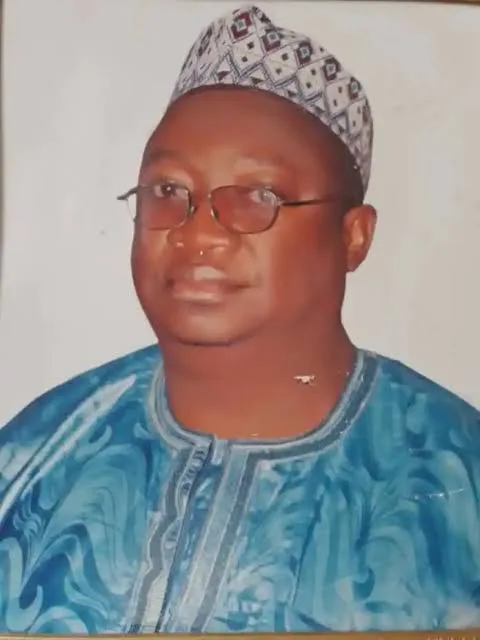
On Saturday, 21st September and Saturday, 16th November 2024, the Independent National Electoral Commission(INEC), shall conduct off-cycle governorship elections in Edo and Ondo States.
The conduct of these elections follow the issuance of their Timetables and Schedules of Activities, according to the 1999 Constitution(as amended) and the Electoral Act 2022, nearly one year ago, and the impending expiration of the tenures of the incumbent Governors of these two States.
Little wonder, we have been witnessing, of late, an uptick in frenetic engagements with critical stakeholders by the Commission. We have also witnessed frenzied campaigns by candidates contesting the elections in the two States.
The two off-season governorship elections are coming after the re-run and bye-elections of 3rd February 2024 and nearly one year after the three off-cycle governorship elections which were conducted on Saturday, 11th November 2023 in Bayelsa, Kogi and Imo States.
These five off-cycle governorship elections, put together, are coming after the conduct of the controversial 2023 General Elections, in which the Commission failed to demonstrate fealty to the Guidelines and Regulations for the Conduct of the 2023 General Elections in relationship to the upload, real time, of Polling Unit(PU) results on the INEC Election Result Viewing(IReV) portal, as enunciated in paragraph 38 of the said Guidelines and Regulations.
As a consequence of this non-compliance with, and lack of fidelity with, its guidelines, serious misgivings were expressed about the credibility of the elections, particularly the flagship one, namely, the presidential election. INEC also suffered immeasurable damage to its reputation as a consequence.
Even when stakeholders wished and prayed that INEC would take advantage of the off-cycle governorship elections of Saturday, 11th November 2023, to burnish its image and earn the confidence of Nigerians, there were serious challenges. These challenges tended to suggest complacency or smugness.
Even though the Supreme Court recently affirmed the victory of the candidates declared by the Commission in the said elections, the actual conduct of the three off-season governorship elections in Bayelsa, Kogi and Imo States were characterised by low voter turn out and rampant vote buying.
In some jurisdictions in Imo State, election results were uploaded on the IReV even in PUs where elections did not take place. In Ogori Magongo Local Government Area of Kogi State, results were imputed into the Form EC 8A (result forms)in lieu of the conduct of elections by fraudulent officials. Even though the Commission intervened promptly and proactively, it did not follow up. It failed to apprehend the perpetrators. It did not have them tried in a Court of law in order for them to be subsequently sanctioned, thereby serving as a deterrent.
Again in Kogi State, where the off-cycle election was largely driven by identity politics, the incredibly huge voter turn out, particularly in the Senatorial District of the winner of the election, was at best, curious and intriguing. The Commission dithered in investigating this unusual phenomenon in spite of entreaties, and in spite of its newly conferred power by Section 65 of the Electoral Act 2022: “…within seven days to review the declaration and return where the Commission determines that the said declaration and return was not made voluntarily or was made contrary to the provisions of the law, regulations, guidelines and manual for the election”.
Against this insalubrious and inauspicious background, the questions remain: Will it be business as usual since the conduct of the 2023 General Elections? Will the Commission finally latch onto the conduct of the off-cycle Edo and Ondo governorship elections to earn the trust it has lost with stakeholders and to embark on an urgently needed journey of redemption? How will the outcome of the elections impact the electoral process and the sullied image of the Commission? What will be the legacy of Professor Mahmood Yakubu, the only person who has been privileged to superintend the affairs of the Commission for an unprecedented two terms?
These questions are pertinent in view of the continued unflattering perception of the Commission. In a recent statement, Dr. Sam Amadi, a former Executive Chairman of the Nigerian Electricity Regulatory Commission(NERC) and Director of the Abuja School of Social and Political Thought, ominously referred to INEC as “a curse”.
Outlandish and harsh as that characterisation may seem, INEC owes itself, as an organisation that is pivotal to our democracy, to up its game and change this odious narrative. It should do so by delivering stellar elections in Edo and Ondo States.
This writer believes, fervently, that this can be accomplished if the will and courage are muscularly summoned. Afterall, before the conduct of the much maligned 2023 General Elections, INEC had conducted luminous off-cycle governorship elections in Edo and Ondo in 2020; and in Ekiti and Osun in 2022.
Besides, INEC has had considerable experience in conducting off-cycle governorship elections in Edo and Ondo States. This is in spite of bellicose, sometimes violent, rhetoric preceding the conduct of the elections and very difficult terrains. On Professor Mahmood Yakubu’s watch alone, INEC has conducted two off-cycle governorship elections in each of these two States.
The Commission should draw, copiously, from this experience. It should also draw from the support of critical stakeholders such as traditional institutions, the media, civil society and the security agencies. The security agencies whose remit it is to secure the environment for the conduct of the elections and to provide logistics support in difficult terrains should be charged to conduct themselves professionally. They did so in the last off-cycle elections in these two States. This salutary carriage led to resoundingly successful outcomes.
Bar the conduct of bye-elections to replace elected officials who have either died or resigned their offices, these two off-cycle governorship elections should be the significant outstanding ones to be held on the twilight of Professor Yakubu’s watch. He should seize onto them to make an enduring statement and to bequeath an enviable electoral legacy.
